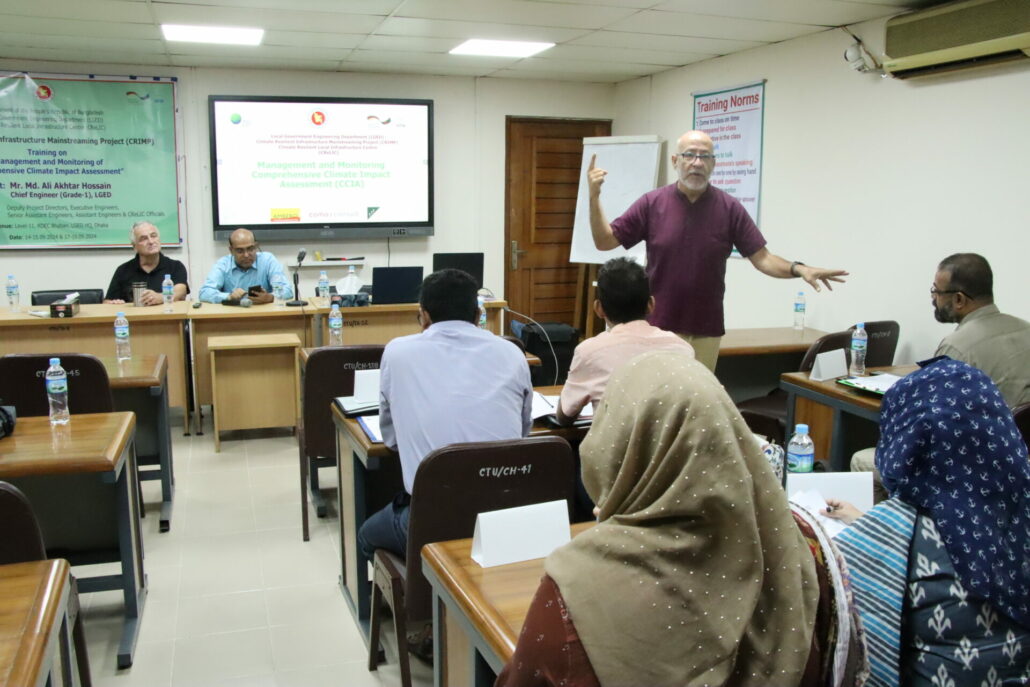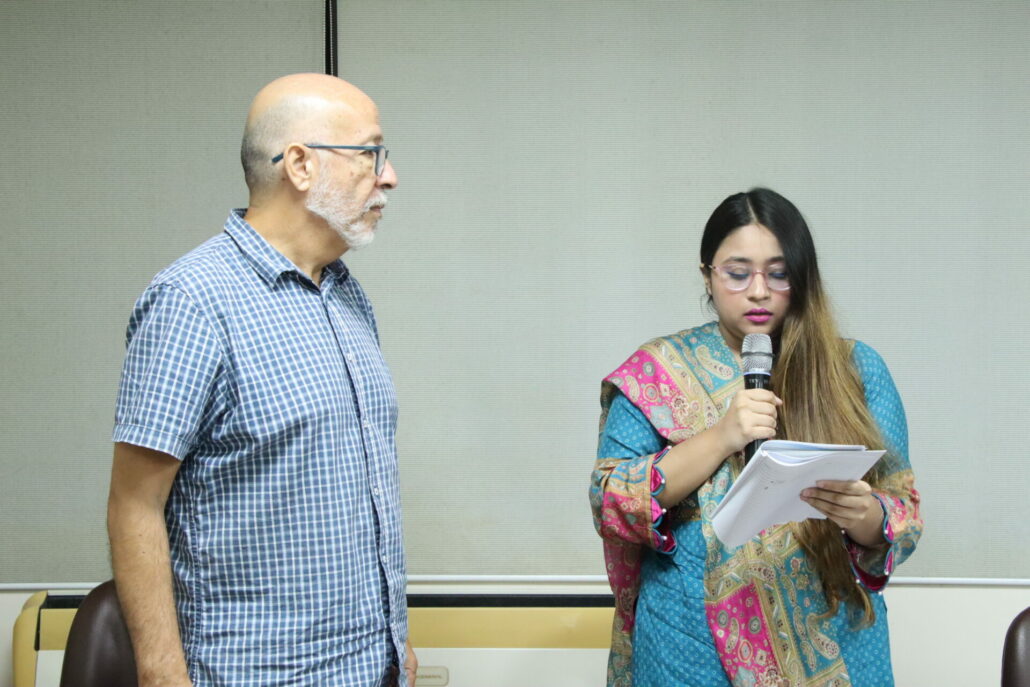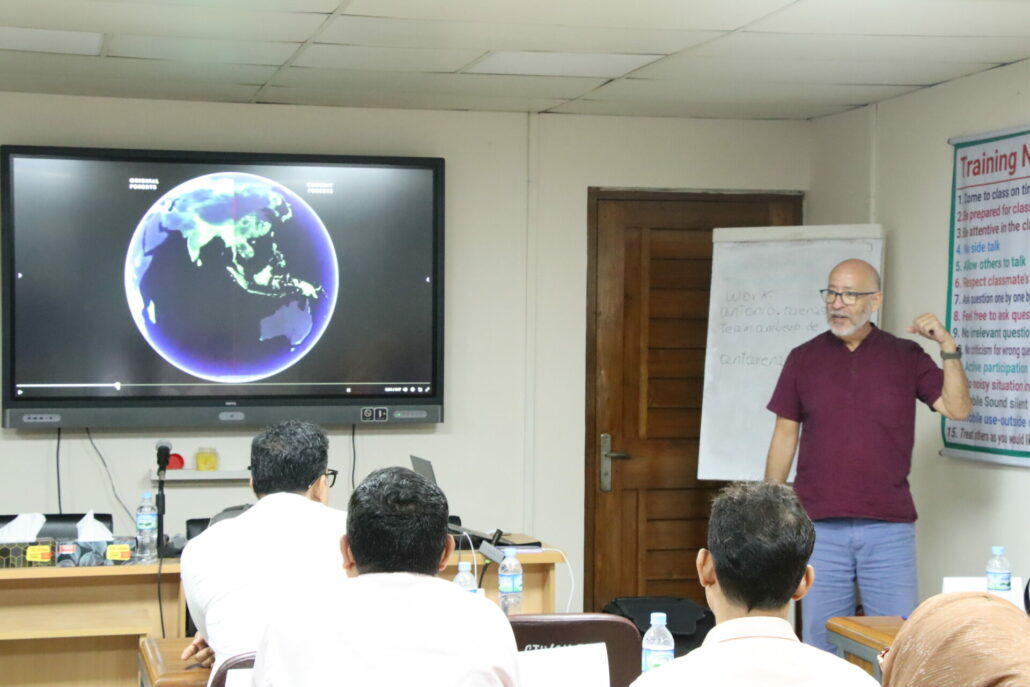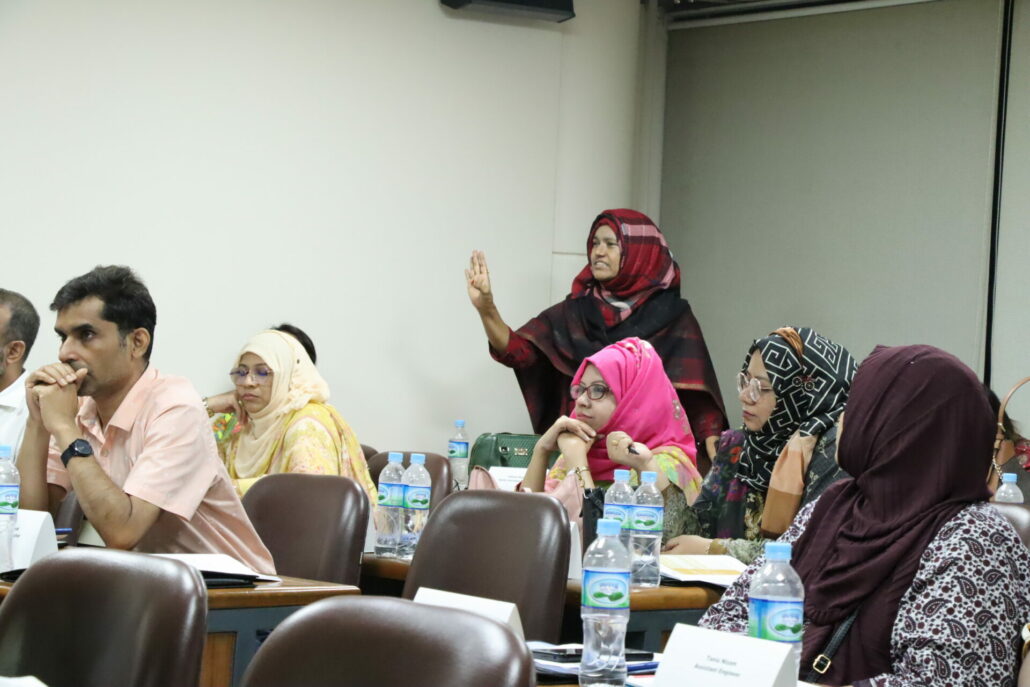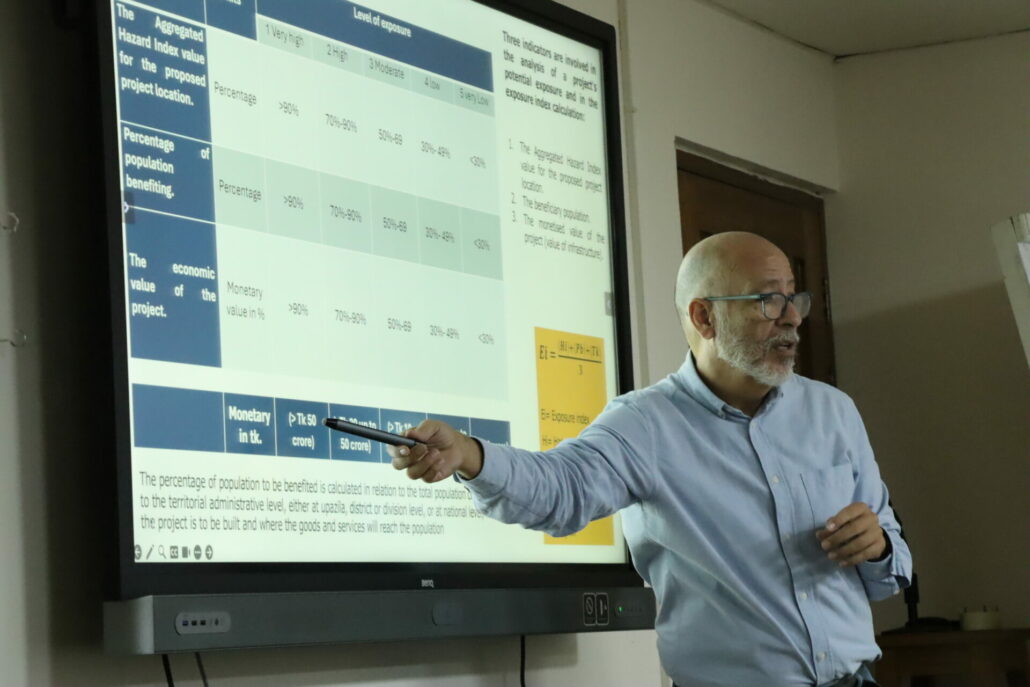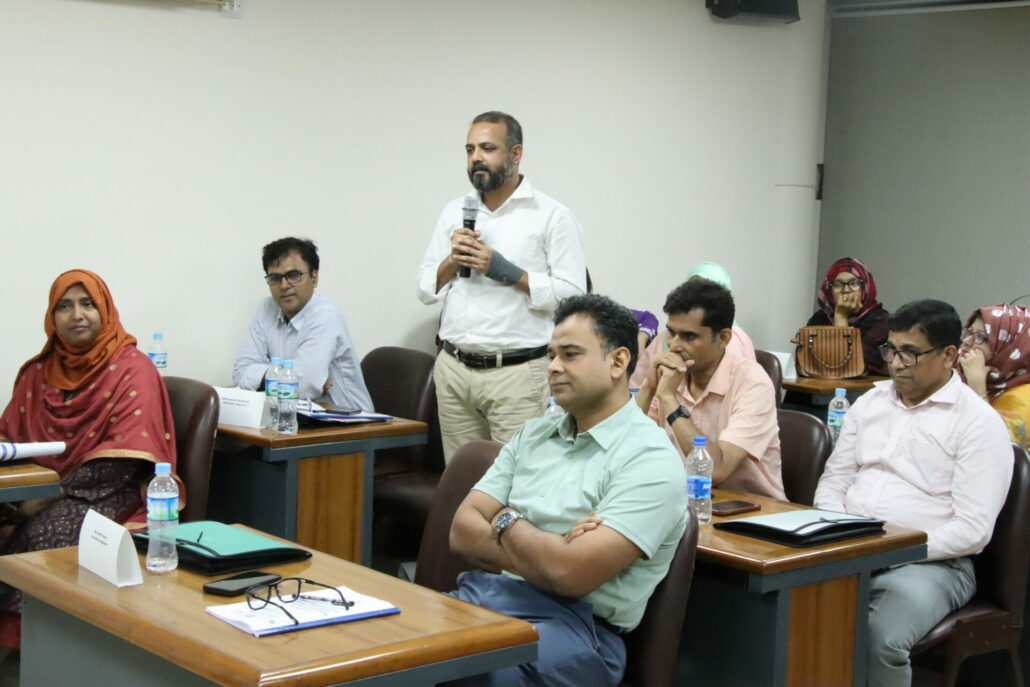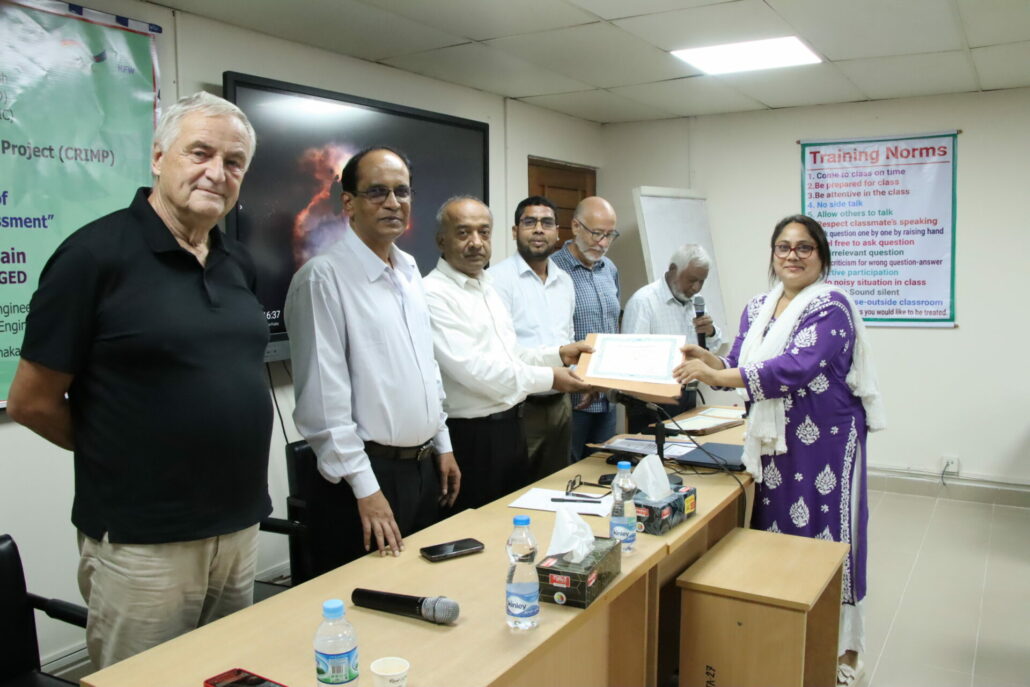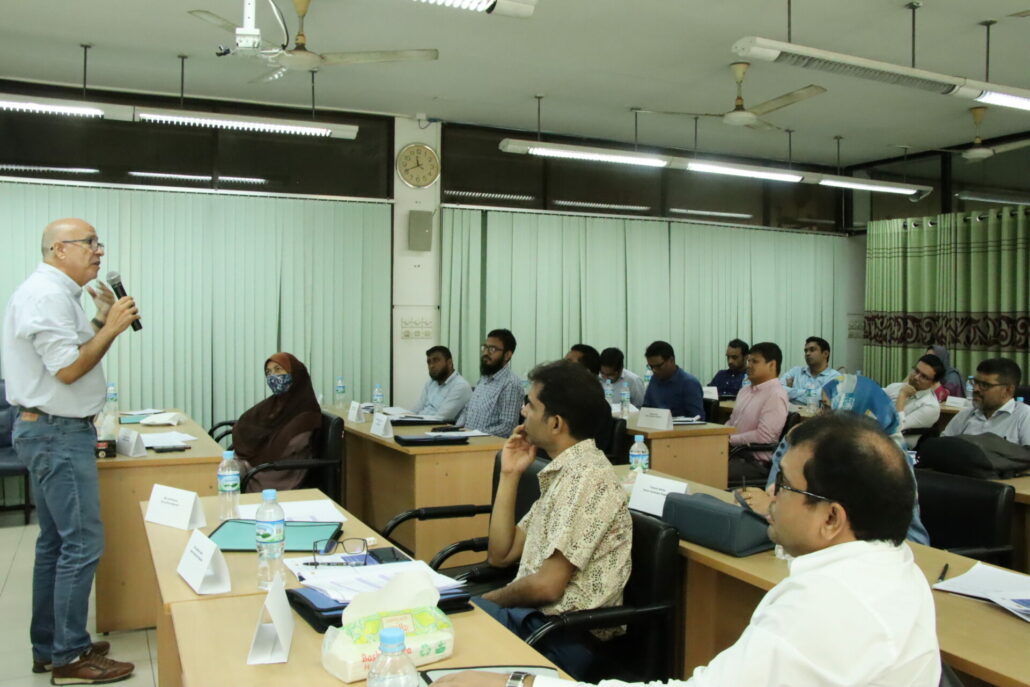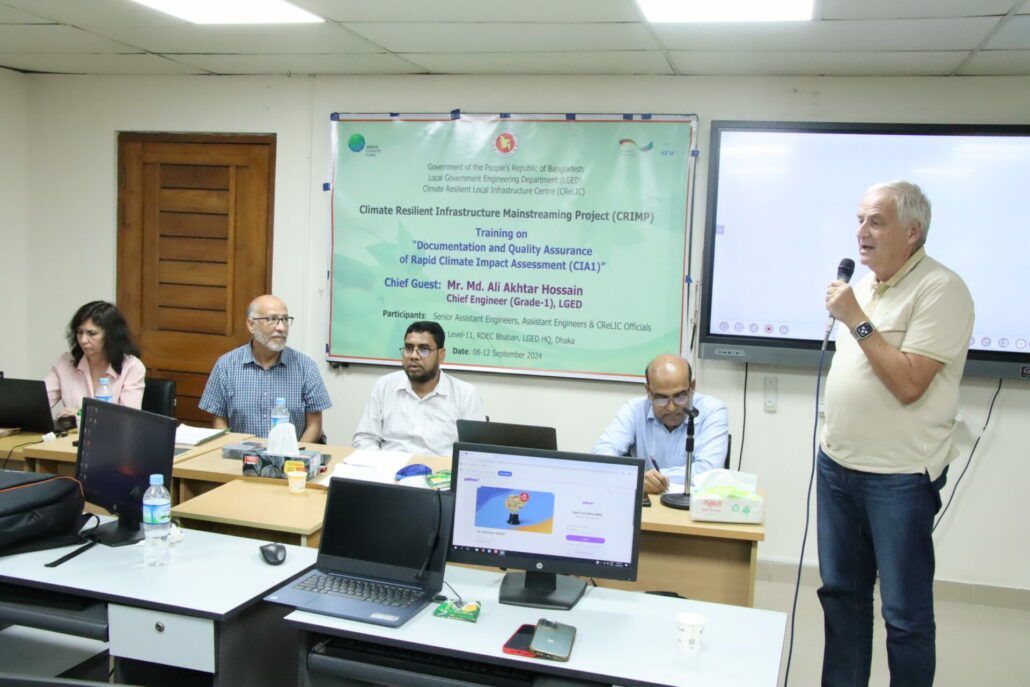LGED engineers in Bangladesh receive training on climate-resilient infrastructure planning
Climate change is more and more present in people’s day to day life. Bangladesh, one of the most vulnerable countries in this regard (Germanwatch Global Climate Risk Index 2021), suffers extremes from heatwaves to floods and cyclones leading to food shortages, power cuts, and destroying homes, causing serious damages and losses.
Understanding the importance of climate resilient infrastructures, the Local Government Engineering Department (LGED) of Bangladesh, one of the largest departments in the country with over 13.000 staff, made designing, developing and maintaining climate resilient local infrastructures a key priority in its business plan. To achieve this goal, a Climate Resilient Infrastructure Project (CRIMP) was conceptualized in 2018 by the German Development Bank (KfW) and co-financed by the Green Climate Fund (GCF) and the Government of Bangladesh. AMBERO Consulting Gesellschaft mbH in a consortium with COMO and TTT is leading the implementation based on 4 pillars: (i) Establishment of CReLIC (Climate Resilient Local Infrastructure Centre) as a centre of excellence and knowledge hub synthesizing and analyzing relevant information to adapt or mitigate the effects of climate change on infrastructures; (ii) a knowledge management system enables the collection of information and knowledge on climate-resilient infrastructures; (iii) Developing and adjusting existing guidelines with new insights on climate change impacts; and (iv) Mainstreaming the knowledge through the organization by organizing seminars, trainings and workshops.
In September 2024, CReLIC successfully organized a series of training sessions aimed at building the capacity of LGED engineers. These sessions introduced new concepts and topics related to Climate Risk Assessment and Infrastructure Planning such as “Documentation and Quality Assurance of Rapid Climate Impact Assessment”, “Management and Monitoring of Comprehensive Climate Impact Assessment” and “Preparation of TPP and DPP with regard to Climate Change”. The feedback of the participants was very positive, as the trainings proved to be impactful, and the engineers acknowledged its importance in helping them plan and develop future climate-resilient infrastructure.
